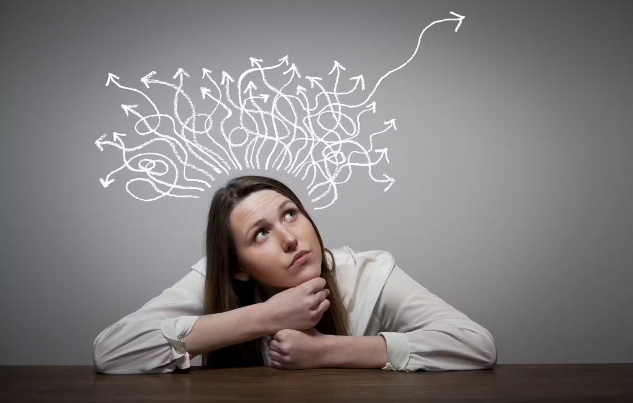
Analytical thinking can make you less likely to believe in conspiracy theories. Marijus Auruskevicius/Shutterstock
I have been researching the psychology of conspiracy beliefs for seven years now and people often ask me why people believe in them. This is not a simple question.
There are many reasons people might endorse conspiracy theories. Something that stands out to me, though, is how our thinking styles can influence the way we process information and therefore how prone we can be to conspiracy beliefs.
A preference for intuitive thinking, over analytical thinking styles seems to be linked to endorsement of conspiracy theories.
Intuitive thinking is a thinking style reliant on immediate and unconscious judgments. It often follows gut feelings, whereas analytical thinking is about slower, more deliberate and detailed processing of information.
I’ve written before about how we can develop a more effortful, analytical thinking style to reduce our predisposition to conspiracy beliefs.
Research has shown critical thinking skills have many life benefits. For example, a study from 2017 found that people who scored higher in critical thinking skills reported fewer negative life events (for instance, getting a parking ticket or missing a flight). Critical thinking was a stronger predictor than intelligence for avoiding these types of events. It’s not clear why this is.
On the other hand, intuitive thinking has been linked to thinking errors. For example, intuitive thinking styles can lead to over-reliance on mental shortcuts, which can also increase susceptibility to conspiracy theories.
This can lead to dangerous consequences. For example, greater intuitive thinking has been linked to anti-vaccine conspiracy beliefs and vaccine hesitancy.
However, extremely successful people, such as Albert Einstein and Apple co-founder Steve Jobs, argued the importance of using their intuition and attributed their achievements to intuitive thinking.
The value of intuitive thinking
One benefit of intuitive thinking is that it takes little or no processing time, which allows us to make decisions and judgments quickly. And, in some circumstances, this is vital.
People working in crisis environments (such as the fire service) report the need to use intuitive thinking styles. During crises, it can be unrealistic to consistently use analytical thinking.
Experienced crisis managers often rely on intuitive thinking in the first instance, as their default strategy, but as the task allows, draw on more analytical thinking later on. Critical and intuitive thinking styles can be used in tandem.
What is important also is that this type of intuition develops through years of experience, which can produce expert intuition.
Intuition can be crucial in other areas too. Creativity is often seen as a benefit of intuitive thinking styles. A review conducted in 2016 of research into idea generation found that creativity is positively linked to intuitive thinking.
Although creativity is difficult to define, it can be thought of as similar to problem solving, where information is used to reach a goal, in a new or unexpected way.
However, it is also important to note that the 2016 review found that combining intuitive and analytical thinking styles was best for idea evaluation.
What is the solution?
Now, research often focuses on developing ways to improve analytical thinking in order to reduce endorsement of dangerous conspiracy theories or reduce thinking errors and misconceptions.
However, we often consider analytic and intuitive thinking styles as an either-or, and when making decisions or judgments we must choose one over the other. However, a 2015 meta-analysis (where data from multiple studies are combined and analysed) of 50 years of cognitive style research found evidence that these thinking styles could happen at the same time.
Rather than two opposing ends of a spectrum, they are separate constructs, meaning that these thinking styles can happen together. Research in decision-making also suggests that thinking style is flexible and the best decisions are made when the thinking style a person uses aligns with the situation at hand.
Some situations are more suited to analytical thinking styles (such as number tasks) while some are more suited to using intuition (such as understanding facial expressions). An adaptive decision-maker is skilled in using both thinking styles.
So perhaps one way to reduce susceptibility to conspiracy theories is improving adaptive decision-making. My 2021 study found that when people were confronted with the misconceptions they had previously made, overestimating the extent to which others endorse anti-vaccine conspiracy theories, they re-evaluated their decisions. This could suggest that thinking styles can depend on the situation and information at hand.
Although in many situations analytical thinking is better, we shouldn’t dismiss the intuitive thinking style conspiracy theorists seem to favour as unworkable or inflexible. The answer could lie in understanding both thinking styles and being able to adjust our thinking styles when needed.![]()
Darel Cookson, Senior Lecturer in Psychology, Nottingham Trent University
This article is republished from The Conversation under a Creative Commons license. Read the original article.
Books on Improving Performance from Amazon's Best Sellers list
"Peak: Secrets from the New Science of Expertise"
by Anders Ericsson and Robert Pool
In this book, the authors draw on their research in the field of expertise to provide insights into how anyone can improve their performance in any area of life. The book offers practical strategies for developing skills and achieving mastery, with a focus on deliberate practice and feedback.
Click for more info or to order
"Atomic Habits: An Easy & Proven Way to Build Good Habits & Break Bad Ones"
by James Clear
This book offers practical strategies for building good habits and breaking bad ones, with a focus on small changes that can lead to big results. The book draws on scientific research and real-world examples to provide actionable advice for anyone looking to improve their habits and achieve success.
Click for more info or to order
"Mindset: The New Psychology of Success"
by Carol S. Dweck
In this book, Carol Dweck explores the concept of mindset and how it can impact our performance and success in life. The book offers insights into the difference between a fixed mindset and a growth mindset, and provides practical strategies for developing a growth mindset and achieving greater success.
Click for more info or to order
"The Power of Habit: Why We Do What We Do in Life and Business"
by Charles Duhigg
In this book, Charles Duhigg explores the science behind habit formation and how it can be used to improve our performance in all areas of life. The book offers practical strategies for developing good habits, breaking bad ones, and creating lasting change.
Click for more info or to order
"Smarter Faster Better: The Secrets of Being Productive in Life and Business"
by Charles Duhigg
In this book, Charles Duhigg explores the science of productivity and how it can be used to improve our performance in all areas of life. The book draws on real-world examples and research to provide practical advice for achieving greater productivity and success.
























